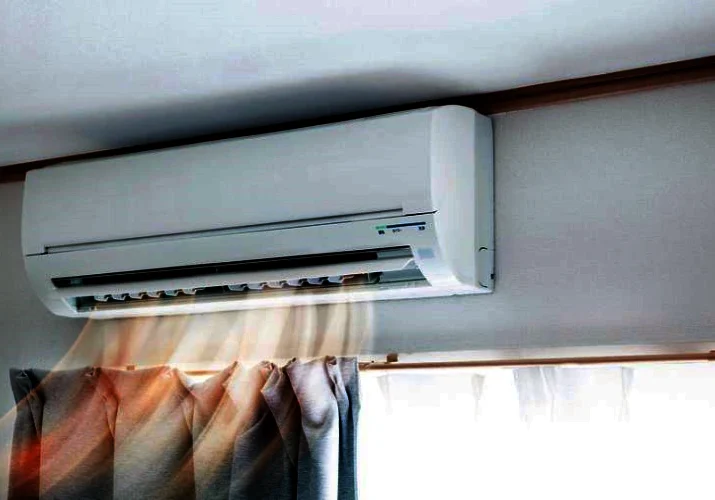Troubleshooting Common Ductless Mini-Split Issues

Dealing with an inconsistent temperature at home can be quite frustrating. One moment you’re feeling warm and cozy, and the next you’re wrapping yourself in blankets. These fluctuations are often accompanied by unusual noises, which may be signs that your ductless mini-split system is having trouble. But, take heart – you’re certainly not alone in facing these challenges.
Many homeowners encounter similar issues with their ductless mini-splits. Inspecting areas like the outdoor unit for blockages or ensuring your remote batteries are fresh might seem trivial, but they can significantly impact your system’s performance. Strange noises from the unit could indicate an obstruction or component issue. Surprisingly, some problems might have straightforward DIY solutions, saving you from hefty repair bills or a complete system overhaul.
Common issues with ductless mini-split systems include dirty filters, clogged drain lines, and refrigerant leaks. To troubleshoot, ensure you regularly clean or replace the filters, inspect the outdoor unit for debris, and check for ice buildup; if you notice any leaks or significant performance drops, it may be time to contact a professional technician for further assistance.
Troubleshooting Common Ductless Mini-Split Issues
The first concern many homeowners face with ductless mini-split systems is related to the outdoor unit. It’s essential to conduct regular inspections for dirt, debris, or even ice buildup that could obstruct airflow. Picture an outdoor mini-split sitting under a tree; fallen leaves may gather around it or branches might inadvertently block air passages. When left unattended, this can significantly restrict airflow, often accompanied by odd noises signaling distress. Ice buildup, particularly in warm weather, often hints at a refrigerant leak or blockage in the drain line. If you see ice forming, it’s crucial to address it immediately, as it could imply more serious underlying problems.
Moving on to electrical problems, there are specific steps you should follow if your system fails to run. Start by checking the circuit breaker; tripped circuits are a common issue that can easily be overlooked. Next, inspect the cord and plug for any visible damage that could disrupt power flow. Sometimes it’s also as simple as changing out the batteries in your remote control. However, if everything appears intact and operational yet your mini-split remains unresponsive, consider examining the thermostat itself. A malfunctioning thermostat can prevent your system from activating, meaning it might need replacing to restore functionality.
Another frequent challenge involves clogged drain lines, which can quickly lead to water damage and possibly strange noises if not addressed properly.
Keeping your drain line clear is vital for optimal performance. To maintain it, running vinegar through the line occasionally serves as a great preventive measure against clogs that can accumulate over time. Think of it as a gentle cleaning protocol that helps remove any biological buildups that may obstruct drainage. If you spot leaks or hear gurgling noises from around the indoor unit, do not hesitate to seek professional assistance. This indicates potential issues within not just the line but possibly affecting other components as well.
Maintaining vigilance and addressing these challenges can dramatically improve the reliability of your ductless mini-split system.
Addressing Indoor and Outdoor Unit Issues
Indoor Unit Concerns
Starting with the indoor unit, several issues can compromise its efficiency. Clogged filters are a notorious culprit; they restrict airflow, causing your system to work overtime and ultimately leading to higher energy costs. Regular maintenance is key here—clean or replace your filters at least every three months, but monthly checks might be even better, especially in high-use seasons. Unusual noises, such as a humming or grinding from the fan, should prompt an immediate check of these filters.
Outdoor Unit Troubles
Moving outside, the outdoor unit often battles elements that can cause various problems over time. Seasonal weather changes can lead to leaves, dirt, or even snow accumulating around the unit, obstructing airflow. Keeping at least two feet of clear space around the unit is a good rule of thumb; this will help maintain optimal airflow and function. Be on the lookout for unusual noises coming from the outdoor unit, as these might indicate obstructions or the need for maintenance.
- Inspect Surroundings: Ensure no debris blocks airflow or settles into the fins of the unit. Unusual noises can often be traced back to these obstructions.
- Check Connections: Look for signs of wear or rust on cables and connections that could lead to failure if left unaddressed. Unusual noises might also emanate from loose or worn connections.
- Physical Damage: Conduct routine visual inspections for dents or leaks. These are signs that something is amiss and could potentially escalate into bigger problems if not treated promptly.
By regularly monitoring both indoor and outdoor units for these specific issues, you can foster peak performance while also setting the stage for further exploration into preventive strategies that will help keep everything running smoothly over time. Pay attention to unusual noises, as they are often your first clue that maintenance is needed.
Common Causes and Preventive Measures
One of the primary culprits behind mini-split system problems is often debris and dirt buildup. Dust and grime accumulate in ducts, filters, and on the outdoor unit, leading to reduced airflow and inefficient cooling or heating. To combat this, it’s essential to schedule regular maintenance, such as cleaning the ducts and filters every few months. Not only does this help prolong the lifespan of your system, but it also significantly enhances its efficiency, keeping your energy costs lower while maintaining a comfortable environment in your home. Additionally, being proactive about maintenance can help in identifying potential issues indicated by error codes.
Refrigerant Leaks
When it comes to refrigerant leaks, these are commonly overlooked but potentially hazardous issues. Small leaks in the refrigerant lines can be tricky to detect; however, they can lead to serious performance problems if left unaddressed. Monitoring your system routinely can help catch these leaks early. Hiring professionals for regular inspections will ensure that refrigerant lines are intact and free from punctures. Being aware of any error codes related to refrigerant levels can also be invaluable in diagnosing and resolving problems swiftly.
Topping up the refrigerant when needed is not just a temporary fix; it’s part of maintaining the overall health of your HVAC system. Addressing refrigerant levels promptly can prevent strain on your system and avert costly repairs down the line. Any error codes related to refrigerant issues should be addressed by professionals to prevent undue strain on the system.
Electrical Issues
Additionally, electrical issues can plague mini-split systems. Loose or corroded wiring is more common than one might think, posing a significant risk for malfunctions. Regularly inspecting electrical connections allows you to identify and resolve issues before they escalate into major repairs or even system failure. Make sure all electrical connectors are snug and free from corrosion; this step is critical for safe operation. Moreover, error codes related to electrical components should never be dismissed; they can provide important insights into the malfunctioning parts of the system.
By ensuring these connections are secure, you’re not only protecting your investment but also preventing potential hazards such as electrical fires or short circuits. Error codes can serve as an early warning system, alerting you to issues that need immediate attention.
With an understanding of common causes and preventive measures in mind, it’s important to recognize situations where a little extra help might be necessary to keep your system running smoothly.
When Professional Help Is Needed
Although it might be tempting to tackle every issue yourself, there are instances where calling in an expert is essential. If you notice continuous operational issues even after troubleshooting your ductless mini-split system, it’s a clear signal that something deeper may be at play. Systems designed to provide efficient heating and cooling can sometimes encounter faults that casual inspections simply won’t reveal.
Indicators You Need a Pro
In particular, keep an eye out for these critical indicators:
- First, if operational problems persist despite your efforts—such as inconsistent temperature control or frequent cycling on and off—it’s time to seek professional assistance.
- Second, if your unit displays unidentified error codes, it’s crucial not to ignore them. These codes often indicate specific malfunctions that require specialized knowledge to interpret effectively. Understanding these error codes can be the key to diagnosing problems and ensuring the continued functionality of your mini-split system.
- Third, persistent leaks or ice formation are warning signs that could signal refrigerant issues or blockage, potentially leading to more significant damage if left unattended.
- Lastly, listen for strange noises that don’t cease during operation. Unusual sounds—like grinding, hissing, or rattling—can point to mechanical failure or other serious concerns that should be addressed by a qualified technician.
Seeking professional help isn’t just about fixing a problem; it’s about restoring comfort and ensuring safety in your home. Keeping these pointers in mind will guide you in making informed choices about repairs and maintenance.
In case you find yourself needing assistance with your ductless mini-split system, don’t hesitate to reach out to us at Diamond Comfort or call us at (413) 527-4737 for expert guidance and support.
Have Any Questions?
Get in contact with us today! We are always happy to help, and you can count on our expertise.

